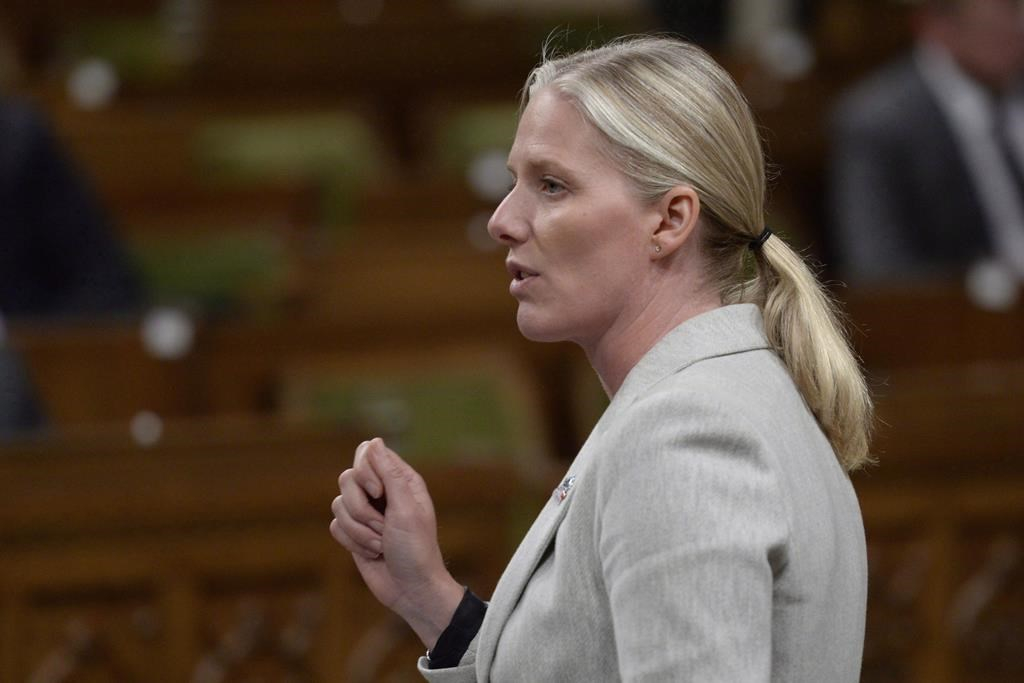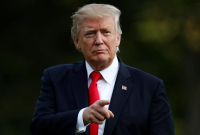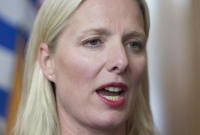Support strong Canadian climate journalism for 2025
Environment Minister Catherine McKenna says there is still time to convince the United States not to withdraw from the Paris climate change accord and an unexpected meeting scheduled for New York next week might be the first step in that direction.
McKenna is one of about a dozen environment and climate ministers from the world's largest economies who were suddenly invited by White House chief economic adviser Gary Cohn to discuss climate at a breakfast in New York on Monday.
Invitations described it as an opportunity for an "informal exchange of views and discuss how we can move forward most productively" on climate change.
The meeting is being taken by some as an olive branch from a White House whose chief occupant has said climate change is a hoax and who announced in June he intended to withdraw the United States from the Paris accord unless it can be renegotiated in favour of the U.S.
"It's certainly a sign that the White House is looking at how they can move forward on this issue," McKenna told The Canadian Press in an interview Wednesday.
Cohn, a registered Democrat, is one of the few people in the Trump administration with a public stance in favour of climate change science.
However a former special adviser on environment and energy to former president Barack Obama says there is no reason for optimism about the meeting.
"Frankly I think this is Gary Cohn playing at making policy-making because we have seen no evidence that he has any influence on the administration," said Nathaniel Keohane, now the vice-president of the Environmental Defense Fund.
"When it counted, President Trump went the other way. I would love to be wrong but I don't see any evidence that I'm wrong."
Just last week Trump bragged to supporters in North Dakota about pulling out of Paris.
The Paris accord was signed by 195 countries in December 2015 to commit countries to working towards keeping global warming to less than two degrees Celsius above pre-industrial levels.
McKenna noted nobody can formally signal intention to withdraw until 2019 and can't actually withdraw until 2020.
"I think there is still time to have a conversation and make the same arguments that you know, the same reasons why we believe climate action makes sense," she said.
Scott Pruitt, head of the U.S. Environmental Protection Agency, has public questioned climate change science. He will not be at the Monday meeting with Cohn.
Neither will he attend a meeting in Montreal this weekend, where Canada, China and the European Union will jointly host ministers and officials from 30 countries, including France, Germany and the United Kingdom, to discuss a path forward for the Paris agreement.
This Montreal conference was conceived in May when the three hosts realized others had to fill the leadership void left by the United States.
"I flew to Berlin for a meeting to just say that we need to step up right now," McKenna said.
"More than anything it's just having a frank discussion amongst key ministers from major economies about how we are still united. The U.S. administration has taken a different path, but we are all united and we are all moving forward."





Comments
Would someone please explain how Minister McKenna can honestly postulate Canada's position as finally a game-changer on the greenhouse gas buildup that's causing climate change while also accepting the construction of pipelines carrying fossil fuels for combustion elsewhere ?